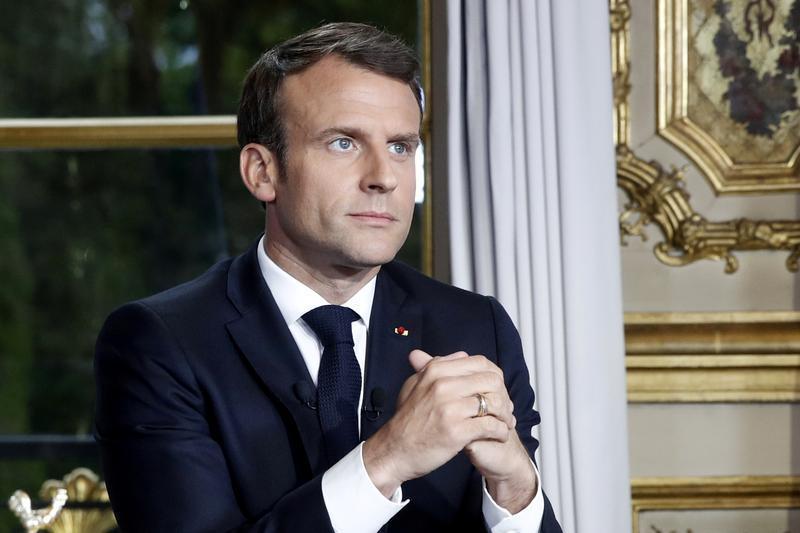Saving the world from existential threat posed by plastic
Mohamed Chebaro Short Urlhttps://arab.news/mkbn7

Whichever way you look at the global economy, plastic remains a key component in most industries and is a key polluter of our ecosystem. Education, enforcement and even making the use of plastic more expensive to the consumer in some parts of the world have failed to curb its use. We must reuse it, encourage its recycling and find more eco-friendly alternatives quickly if we cannot abandon it altogether.Though many nations have, for the past three decades, been working to encourage their economies and consumers to stop throwing away so much plastic, even today less than 10 percent of plastic produced globally is recycled. Europe, which has long been trying to reshape its economy away from plastic, manages to recycle only 30 percent.Though plastic does not directly impact climate change — despite it being guilty in its production phase of contributing to fossil fuel and manufacturing emissions — its dumping in the oceans has led to microplastic infiltration, disrupting the water’s capacity to act as a natural carbon sink and challenging the sea’s usual absorbance of up to 40 percent of human-made carbon dioxide.The UN Environment Assembly believes that a new, binding and comprehensive treaty could offer a multilateral means to manage the full life cycle of plastic in the hope of reducing its polluting impact on the planet. Though the recent meeting in Nairobi, Kenya, brought 175 nations together and succeeded in garnering support from all to work toward negotiating such a deal by 2024, one hopes that any future lack of consensus and the competing interests of nations in our increasingly dysfunctional world will not empty such an international convention of its impactful tools. It must find a way to reduce our addiction to plastic, find a good enough material to replace it in our economy and manage the recycling or disposal of all remaining plastic away from seabeds and marine life. This could include caps on the production of new plastic and the redesigning of products to make recycling easy or less harmful, while also phasing out single-use plastic items.Since the 1950s, the volume of plastic produced has grown faster than any other material, vastly outpacing national efforts to keep the environment clean. Today, approximately 300 million tons of plastic waste, which is equivalent to the weight of the entire human population, is produced annually. Only about 9 percent is recycled and the rest goes into landfill or the oceans. It has been estimated that a garbage truck’s-worth of plastic is dumped in the sea every minute, leading to damage to marine life and coastlines, while microplastic particles found even in Arctic ice could start to enter the animal food chain and eventually become part of the human diet by default.I remain skeptical of the viability of such a treaty, despite the optimism of those who conceived it. “We are looking at something that is legally binding and has consequences, and not just a treaty that people can sign onto... but doesn’t have the teeth to bite back,” said Erastus Ooko from Greenpeace Africa. Dozens of major corporations, including Coca-Cola and Unilever, recently said that a plastic treaty with binding targets “was crucial to set a high common standard of action for all countries to abide by.”So far, all alternatives to plastic or eco-friendly versions of plastic have fallen short of echoing the optimism of campaigners and corporates. We are still waiting for viable and practical alternatives that serve businesses and consumers, as well as biodegrading safely in the environment when containers or bags are disposed of.
A multilateral treaty could offer a means to manage the full life cycle of plastic in the hope of reducing its polluting impact.
Mohamed Chebaro
As consumers become more aware and have been demanding greener alternatives to plastic, “biodegradable” has become the buzzword in the hope of finding a suitable and affordable alternative material that can be easily disposed of. But the technology is not there yet, nor is the low cost, which will be a key characteristic if a replacement for plastic is to be found.Sifting through the tons of information and specifications available online, one can see that many different technologies have been suggested for a biodegradable plastic that can be broken down by microbes, chewed up and turned into biomass, water and carbon dioxide, and some can even be turned into compost. The problem is that very few of these can be naturally processed, as most require special treatment, better known as industrial composting. The little logo on the coffee cup you drink from every day might delude you into believing that it will dissolve naturally and harmlessly with time. But the issue is more complex than that, with scientists grappling to find the right formula.Biodegradable plastics and a return to paper and cardboard-based packaging are making a difference, but not yet on a scale that will eradicate the world’s dependence on environmentally harmful plastic. Time and, above all, investment are needed. The mindset that technology will save all is great, but in the meantime a dose of behavioral adaptation might be needed if we are to lessen the existential threat to our planet from it becoming a plastic dumping ground.
Disclaimer: Views expressed by writers in this section are their own and do not necessarily reflect Arab News' point of view